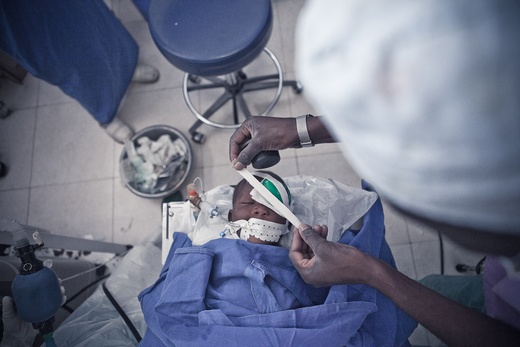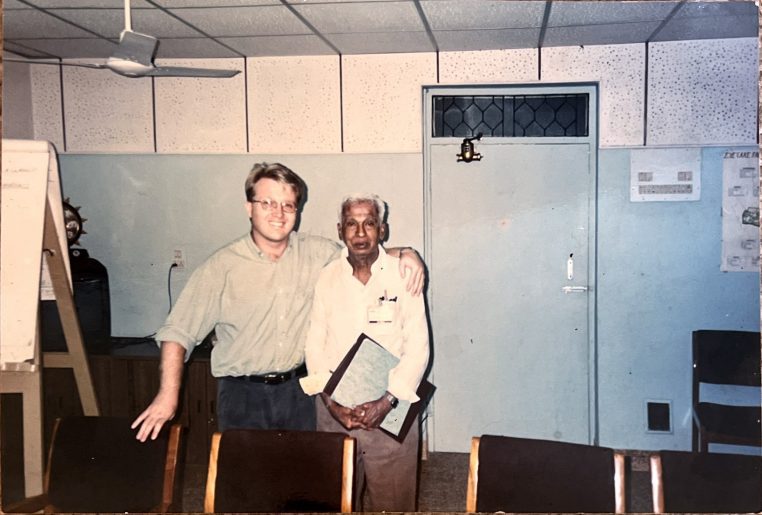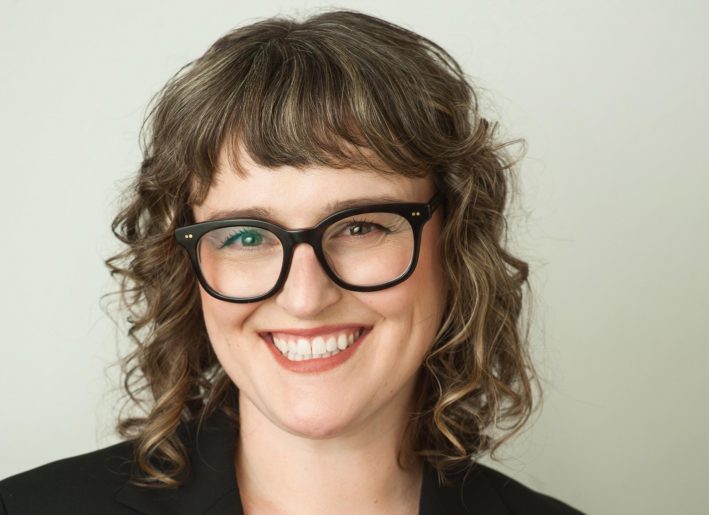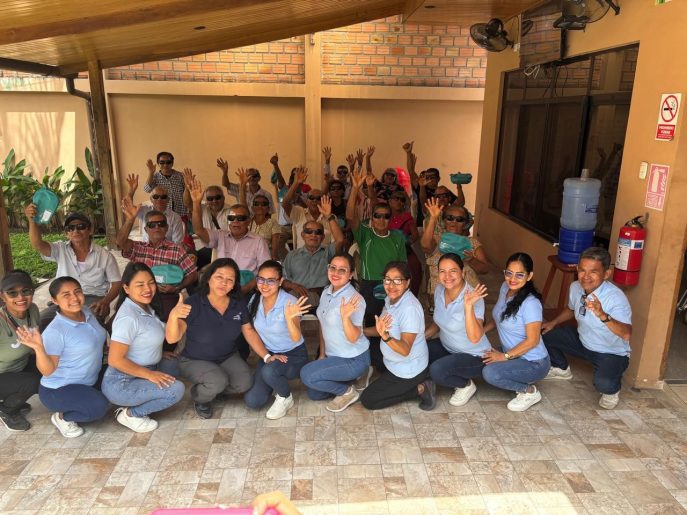Malawi is one of the poorest countries in the world and has a population of approximately 13 million people, of whom 50% are children. For children in Malawi, congenital and developmental cataracts are the leading causes of blindness. Every year approximately 120-180 children are born with congenital cataracts or they develop cataracts; moreover, there is a backlog of over 600 children who need urgent eye care.
Childhood blindness is one of the five priority diseases that have been targeted by the VISION 2020 initiative. The Childhood Blindness Program in Malawi is dedicated to reducing childhood blindness through early identification of children with visual impairment, providing appropriate interventions, and follow up.

A child receives an eye patch after cataract surgery in Malawi. Photo from July 2011 courtesy of Paolo Patruno.
One of the many challenges of childhood blindness is finding and identifying children with vision problems. Childhood blindness often goes unnoticed because children cannot speak for themselves about their poor vision so parents are unaware of it. In addition, parents themselves are more concerned about the general health of their children rather than their eyes.
Thanks to Seva donors, from Jan 2010 to June 2011:
- 247 health workers and volunteers have been trained to seek out children with eye problems
- 6,692 children have had their eyes examined
- 207 children had cataract surgery to restore their sight, split as 119 boys and 88 girls
- All the children who received surgery were provided with special pediatric lens implants
The ripple effect of surgery for the 207 children will be felt for generations. Those children will now be able to play with their friends, go to school and eventually earn a living; their families will no longer face the economic, social and emotional burden of caring for a blind person. Each operation prevents an average of 50 years spent in blindness, so these 207 eye surgeries have prevented 10,350 years of blindness.
FOLLOW-UP CARE AND GLASSES
Follow-up care and the provision of glasses is an important part of fighting childhood blindness. In the period, 89 children received prescription glasses. Seva is grateful to Canadian optical companies like OGI Canada Inc. for donating children’s frames. We have subsidized transport for all children who came for cataract surgery, follow-up, surgery, and to collect spectacles. Seva is working to provide low vision care for the approximately 13,000 children with low vision.
Join us in bringing eye care to Malawi’s children. Donate to Seva.
See the blog post with more of Paolo Patruno’s photos of the projects in Malawi.



